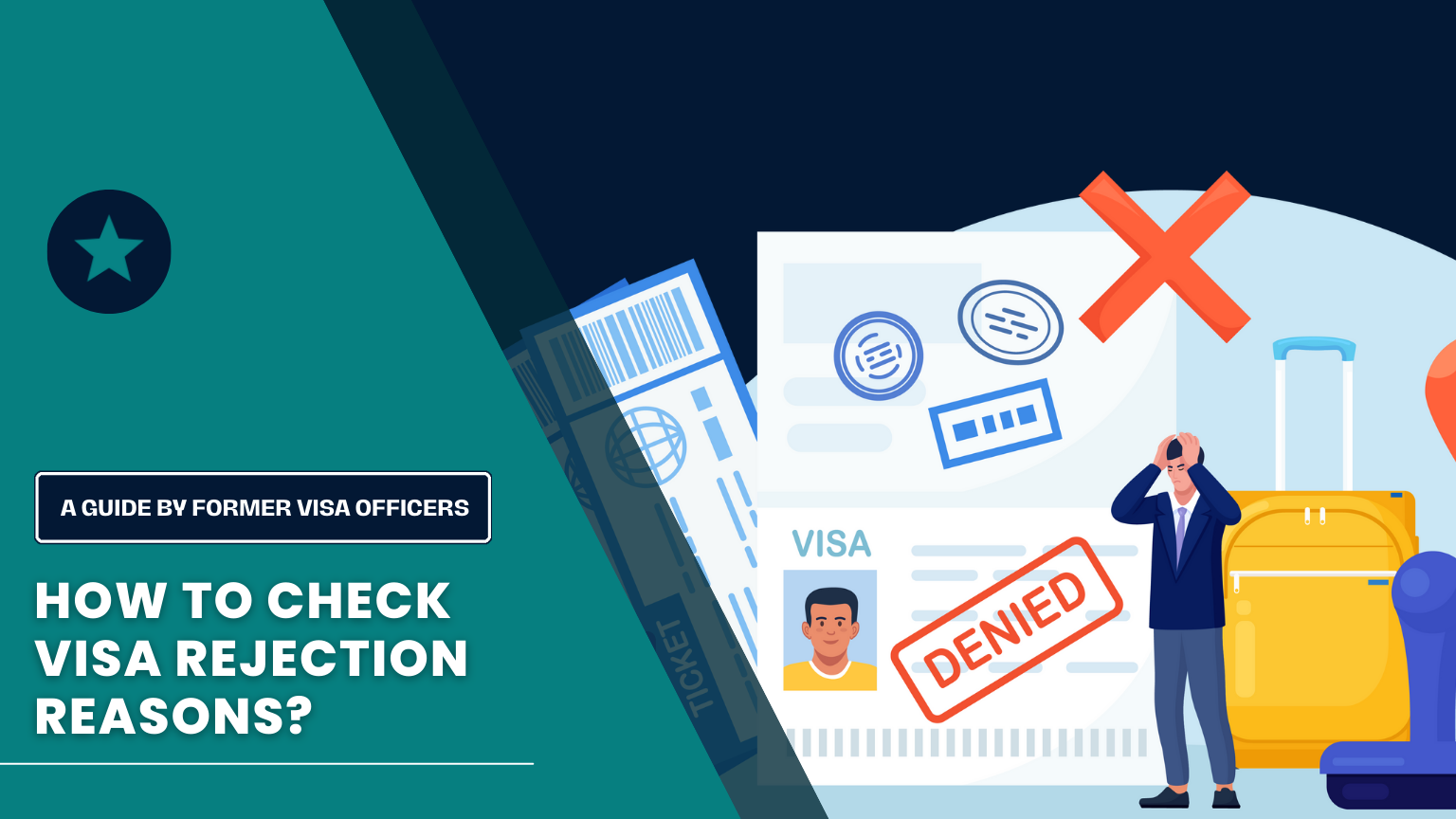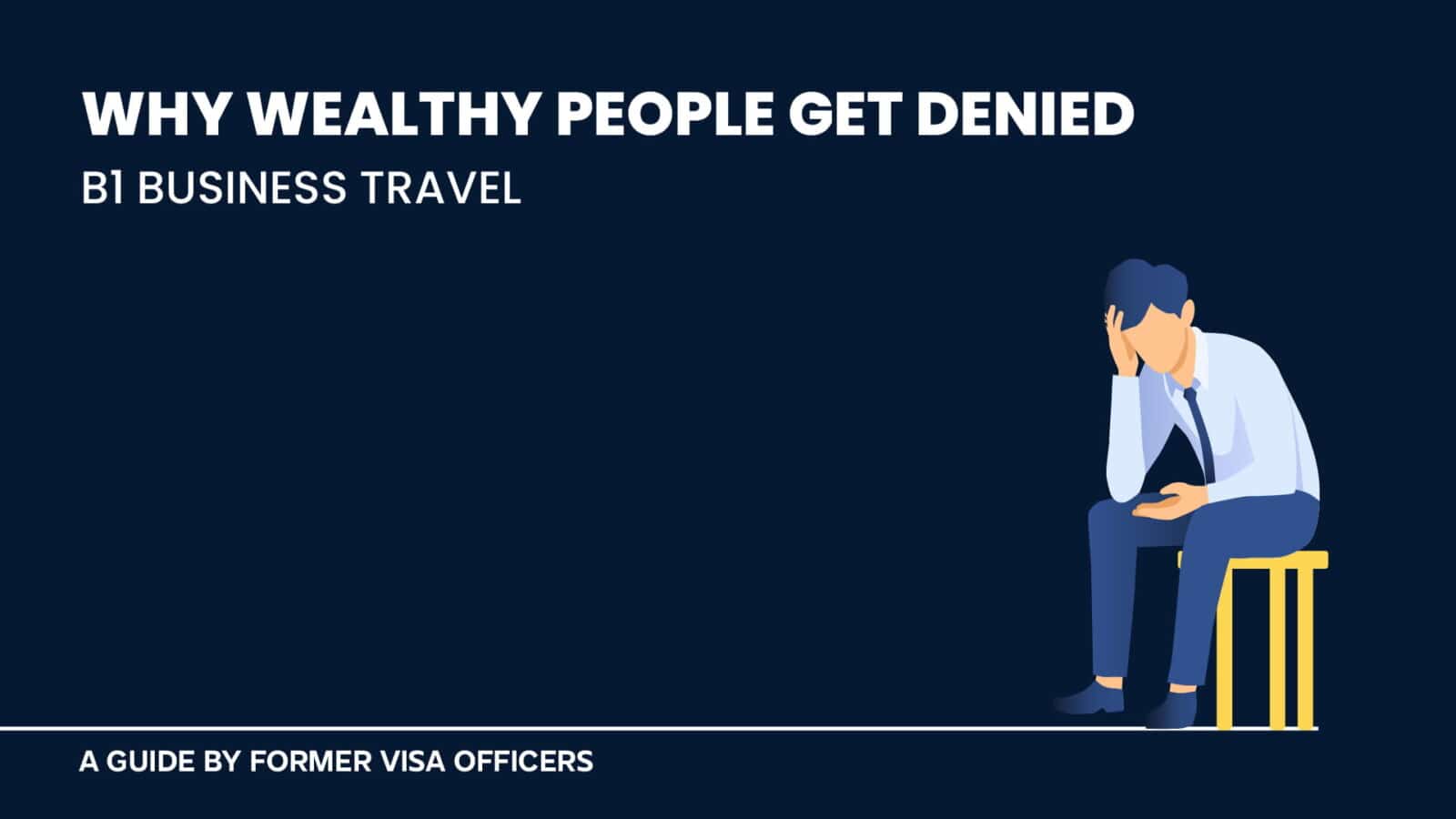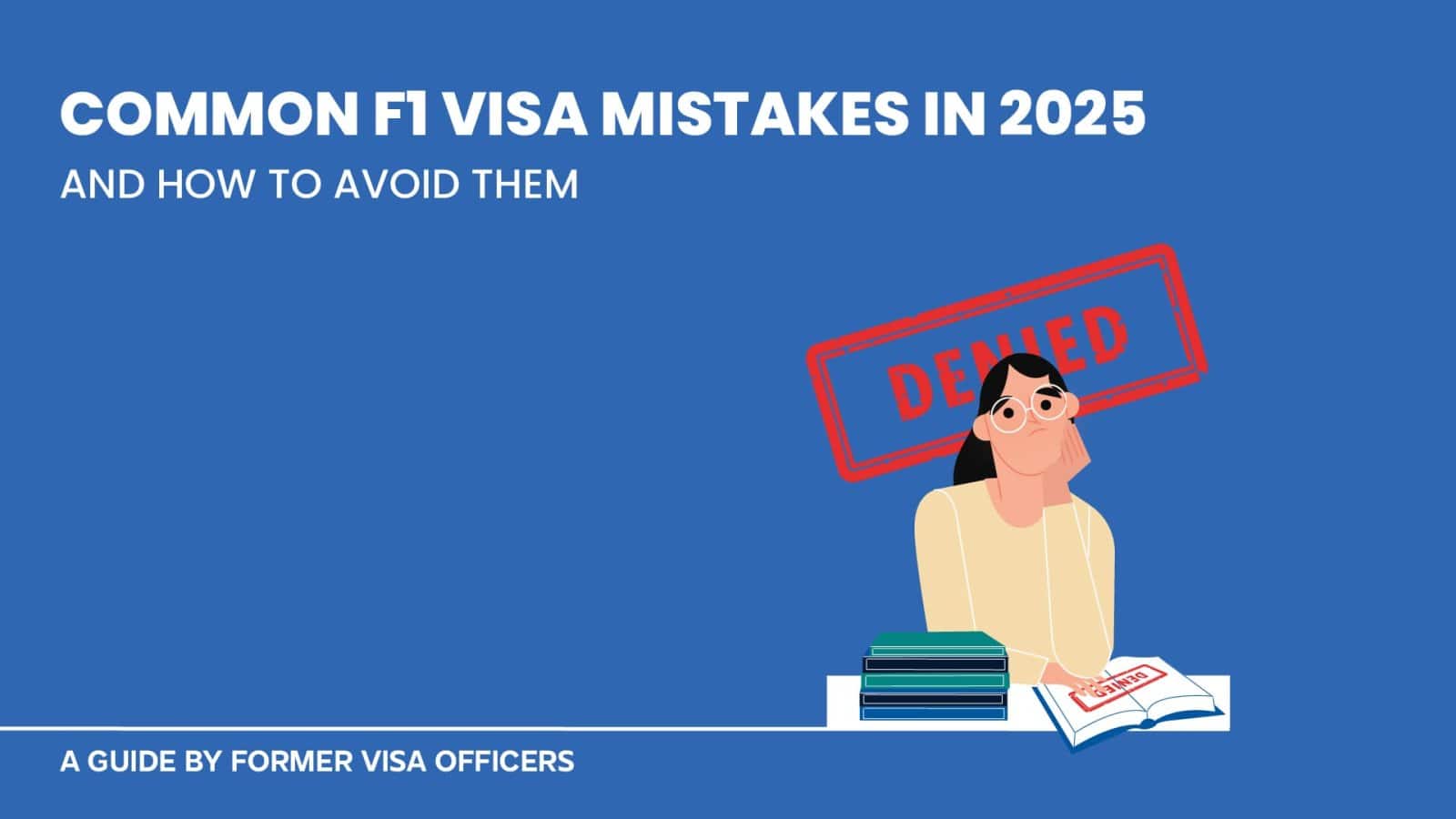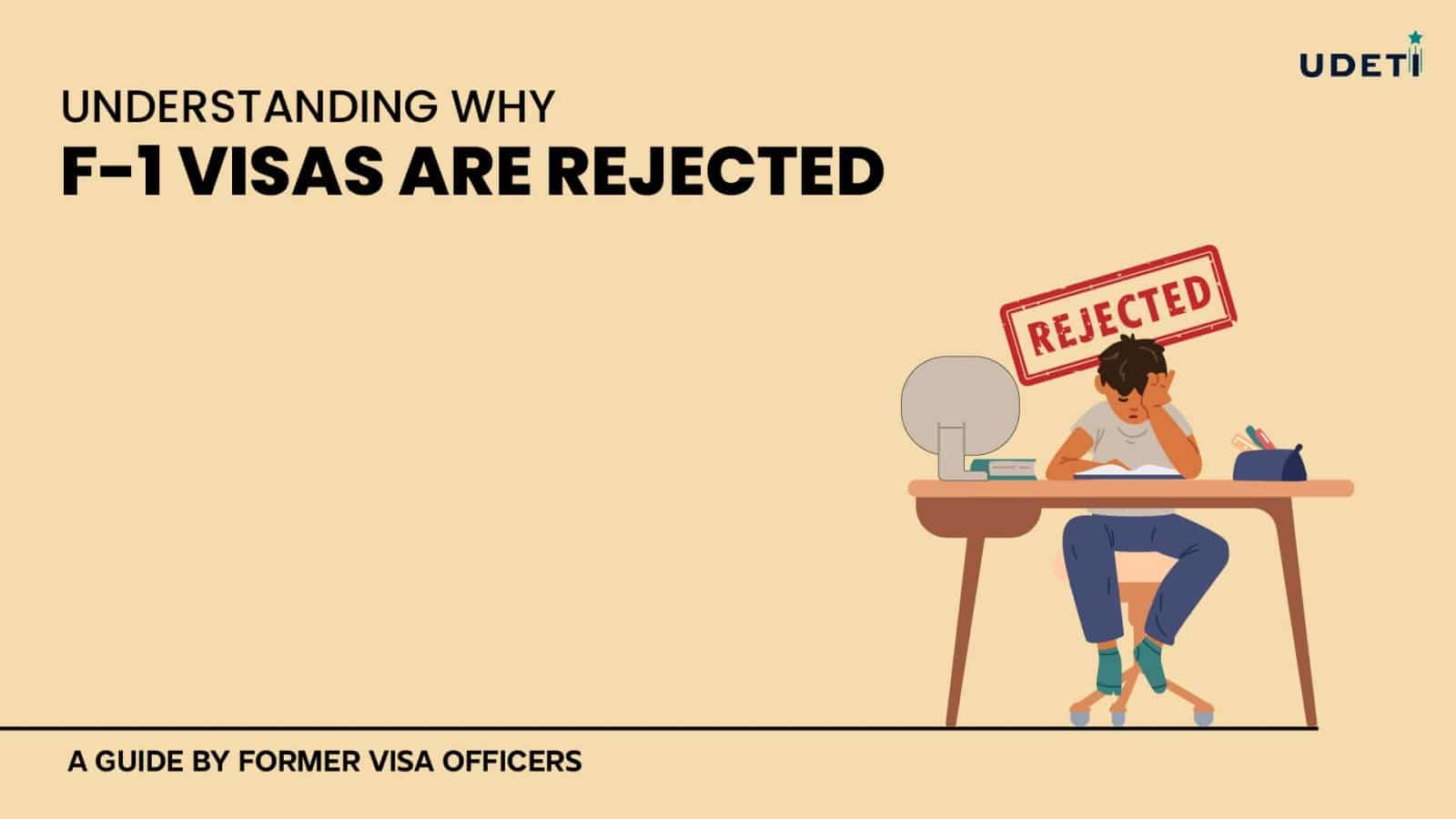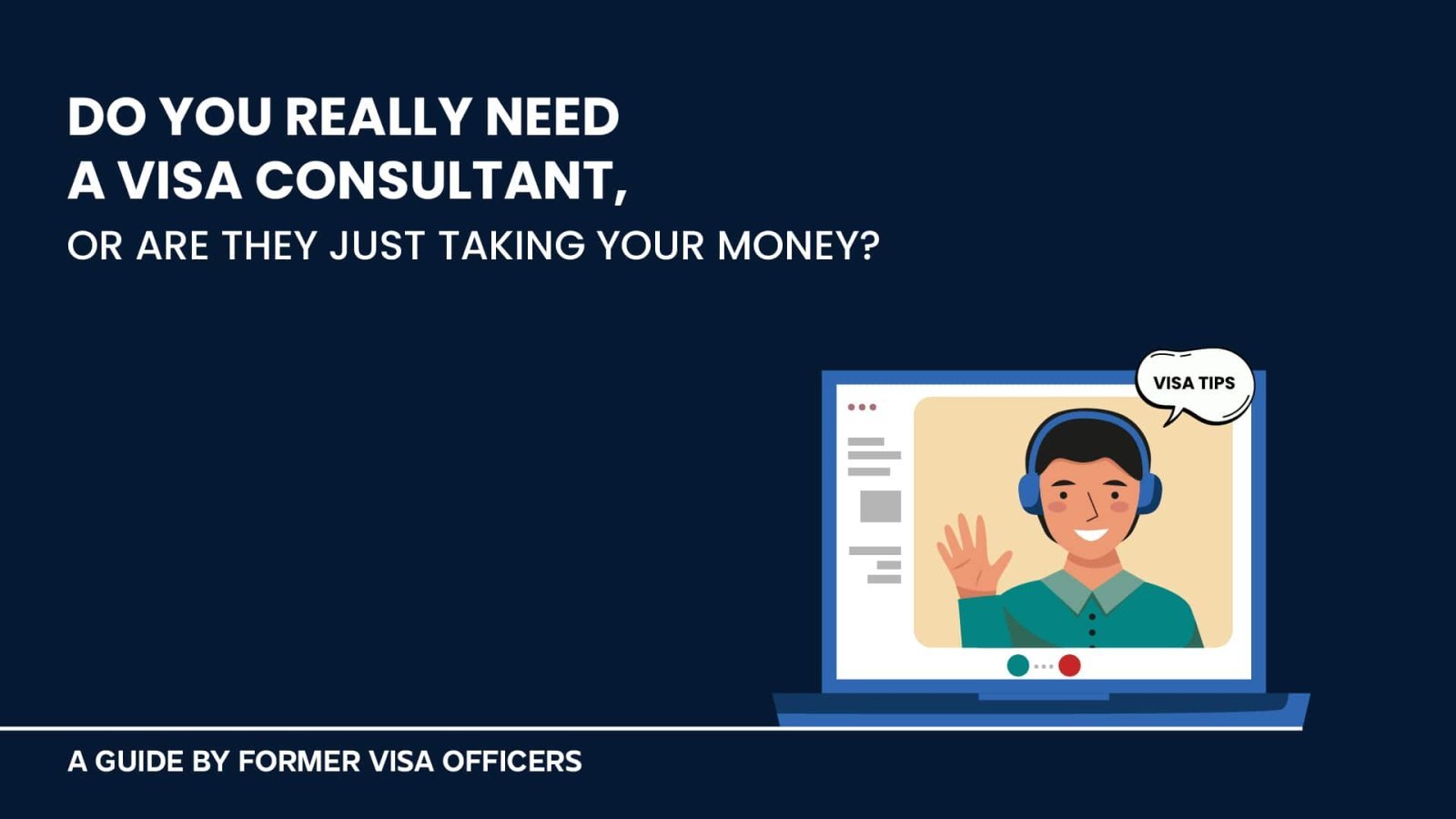U.S. visa rejections, or denials as often referred to, happen frequently. It doesn’t matter where you apply from; it is disastrous to learn that your visa request has been denied despite the time and money you spent on this exercise.
What is meant by Visa Denial?
Your visa may be denied because you filled out incorrect information in your application. Or you did not present your case well enough at the interview with the consular officer. In either case, the consular officer deems you unqualified for the visa, and it will be denied. By the way, just because you are found unqualified does not mean you are unqualified; it may just mean that you made some mistakes at the visa interview and the consular officer needed to understand your travel intentions better.
Visa denials can happen at any stage of the process. For most denials, an applicant can always apply again.
Visa denial and visa refusal have the same meaning and can be used interchangeably.
How do you learn why your Visa was Denied?
Usually, the authorities promptly notify you of the visa denial code. They will give you a paper notice stating the relevant section of U.S. law under which your visa is denied. You can check out the list of reasons on the U.S. Department of State’s official web page. However, you may never know the exact reason for the denial. Your 214(b) notice will be general and not specific to your case, which can be confusing and frustrating for applicants.
Some of the significant visa denial reasons include:
Denial under section 214(b) of the Immigration and Nationality Act
If the consular officer dealing with your cases suspects you plan to immigrate to the United States permanently, they could deny your visa under this act.
Section 214(b) of the Immigration and Nationality Act states that consular officers must assume that all visa applicants intend to immigrate to the U.S. permanently unless proven otherwise. You must carry documentary proof that convinces the officer your stay is temporary.
Denial under Section 212(a) of the Immigration and Nationality Act
This denial can happen if the consular officer finds you “inadmissible.” A red flag may flash if your background or something you uttered during the interview sounds suspicious.
It could be a health-related issue, a criminal record you are trying to hide, or proof of immigration violations that are not in your favor.
Refusal under Section 212(g) of the Immigration and Nationality Act
Need to speak to a former U.S. consular officer?
If the consular official cannot decide immediately, they may refuse your visa under 221(g) and ask you to submit additional information. 221(g) places your case on hold until you submit the requested documentation. The officer could also just want additional time to review your case so they will put it into 221(g) without requesting additional documents. 221(g) is not always serious; sometimes, the officer has to check on something minor, such as checking on your SEVIS status if you are an F1 student. 221(g) is often cited as “administrative processing,” where the officer can take more time to review before making a decision.
Conclusion
In conclusion, U.S. visa denials and administrative processing are not always clear-cut. Even if the officer gives you a 214(b) letter, you may never know the exact reason for the refusal. If you need help preparing for your upcoming interview, your ex-Visa Officer can help coach you through what to expect and answer all your questions.
(This blog post was written by Yvette Bansal, a former consular officer, and Ramesh Vittal Rao, a Senior Content Writer.)
DISCLAIMER:
This blog does not endorse or advocate for any illegal activities. All content presented here is intended for educational purposes only. The viewpoints expressed do not constitute legal advice and are solely based on the writer’s opinions and experiences. Please use the information provided responsibly. Any advice given is of a general nature and should be applied to your specific circumstances with caution and consideration.
Copyright © 2024 UDETI LLC. All rights reserved.

